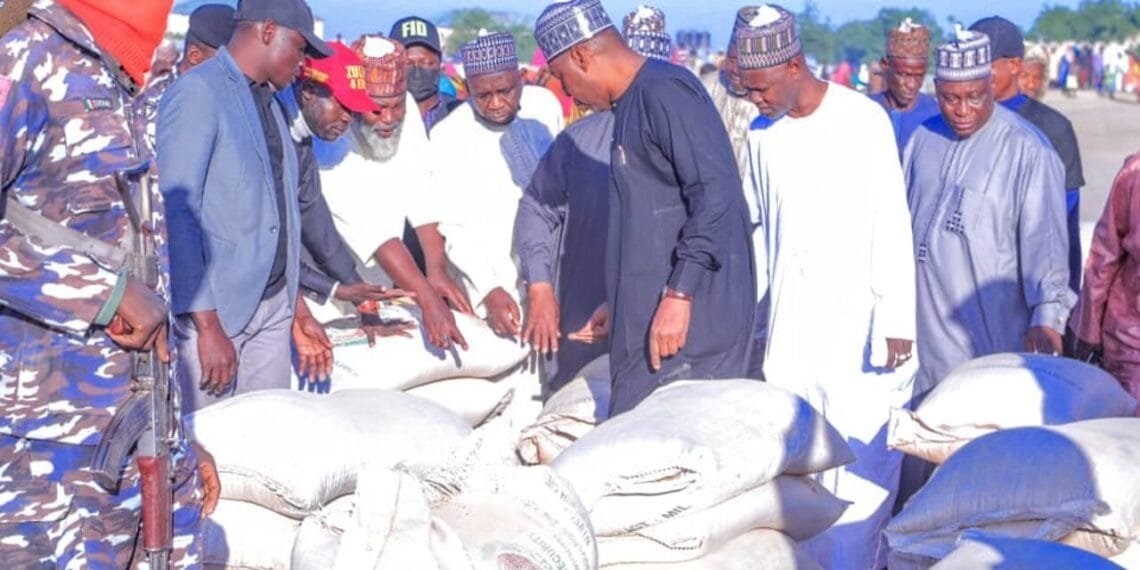Governor Babagana Umara Zulum, of Borno State, has commenced the distribution of the 100 trucks of food items donated to the state by President Bola Tinubu.
The initiative which kicked off on Monday in Ngala Local Government Council of the state, is targeting residents of Gamboru, Ngala, and surrounding communities that have faced food shortages due to heavy rainfall and flooding over the past four months.
The distributed grains comprising maize, sorghum, and millet were allocated primarily to vulnerable households.
Speaking during the flag off, the governor highlighted the significance of Ngala as the first distribution point, citing the area’s prolonged isolation caused by natural disasters.
“This morning, we flagged off the distribution of 100 trucks of assorted grains to communities in Ngala. This town has been completely cut off from the rest of the country for about four months due to heavy rainfall and flooding. The movement of food items to Ngala was disrupted, making this intervention critical,” Gov. Zulum said.
The governor expressed gratitude to President Tinubu and relevant federal agencies for their support in providing relief to the affected communities.
He revealed that the federal government had also supplied an additional 100 trucks of rice for victims of Maiduguri’s flood disaster.
“All of the food items we shared today were donated to us by President Bola Ahmed Tinubu. These supplies will help alleviate the hardships faced by our people,” the governor stated, adding that the state is working toward long-term solutions to food insecurity.
He disclosed plans to transition from food aid to sustainable agricultural initiatives, including the establishment of irrigation systems to enable year-round farming.
“The state government is putting in place medium and long term strategies to ensure residents can cultivate their lands throughout the year. This includes establishing irrigation structures, particularly in Ngala,” he added.
The state governor, reiterated his administration’s commitment to addressing the needs of displaced and vulnerable residents while fostering resilience through sustainable development.






